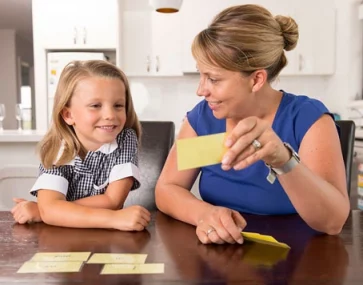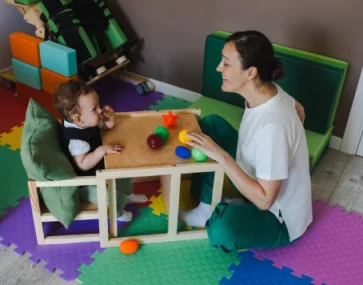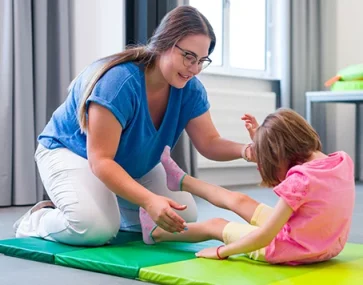Children with special needs benefit greatly from occupational therapy (OT). It provides them with life skills that they can apply to their daily activities. Those tailored activities that assist individuals with illnesses or disabilities in overcoming obstacles that make their lives difficult are particularly beneficial.
It assists children with physical, sensory, or cognitive disabilities to develop functional skills. Among these are:
- Eating with utensils
- Putting on socks and shoes
- Personal hygiene
- Adaptive learning abilities
- Handwriting capability, and
- Social skills
As part of treatment, a pattern of routines is provided in order to assist the individual in continuing to practice the learned behaviors. Children are provided with aids and equipment to support underdeveloped parts of their bodies and to develop motor skills in order to assist them in achieving this goal.
The focus of OT for children is on developing their skills. It is often determined by their interest and motivation in activities, along with parental support. Therapy is tailored to each child’s unique capabilities, but the impact of OTs is measurable and observable.
The Signs That A Child May Require Occupational Therapy
As developmental delays are detected, typically via challenges that do not affect age-appropriate function, occupational therapy services can provide progressive support.
The following are some of the obstacles to children’s development:
- Developmental delay
- Fine motor and gross skills difficulty
- Visual processing
- Oral motor or oral sensory
- Sensory processing
- Social interaction skills
- Learning challenges, and
- Play skills
How Does An Occupational Program Work?
The treatment is patient-centered, putting the patient’s goals first. A treatment plan will be developed and administered by the therapist. Assisted by them, they will be able to manage their daily activities in a more effective and efficient manner. The child and family will be able to learn new ways to accomplish basic tasks and discover strategies to simplify their existing routines as a result of this.
Occupational therapists may observe the child’s daily routines at school, home, or any other location in order to monitor the effectiveness of treatment plans. In addition, this will allow the therapist to recommend any adaptive equipment that may be of assistance to the patient.
Pediatric Occupational Therapy UAE
Occupational Therapy for special needs children is provided at Hope AMC, one of the unique Occupational Therapy clinics in Dubai. The pediatric occupational therapists at Hope AMC have the highest level of training and experience to conduct thorough pediatric Occupational Therapy assessments before designing customized Occupational Therapy programs for each child.
In conducting OT activities for children, the therapists use advanced therapeutic techniques and tools to ensure that the children can achieve their goals and gain maximum independence. Our belief is that parents are the best teachers and they should be an integral part of their child’s treatment, so we encourage them to attend therapy sessions with their children.
Occupational Therapy for children will be beneficial to your child if he or she has any of the following issues:
- Whether he/she is experiencing sensory challenges such as over-responsiveness or under-responsiveness.
- A child with poor fine motor skills should be evaluated.
- Having difficulty sitting still at one place or listening attentively is an indication that he or she has attention and concentration problems.
- It is possible that he or she does not have good eye-hand coordination.
- Lack of social skills, such as limited peer interaction, decreased play skills, etc.
- In the event that the individual is unable to independently perform the daily self-care tasks.
- In the event that he/she is having difficulty sleeping.
- A person who exhibits abnormal emotional reactions, such as getting agitated, not being able to calm themselves, or showing any other kind of abnormal emotional behavior should be referred to a professional.
- He/she may have difficulty accepting changes in the daily routine or environment.
Please contact us if your child is experiencing any of these problems.






